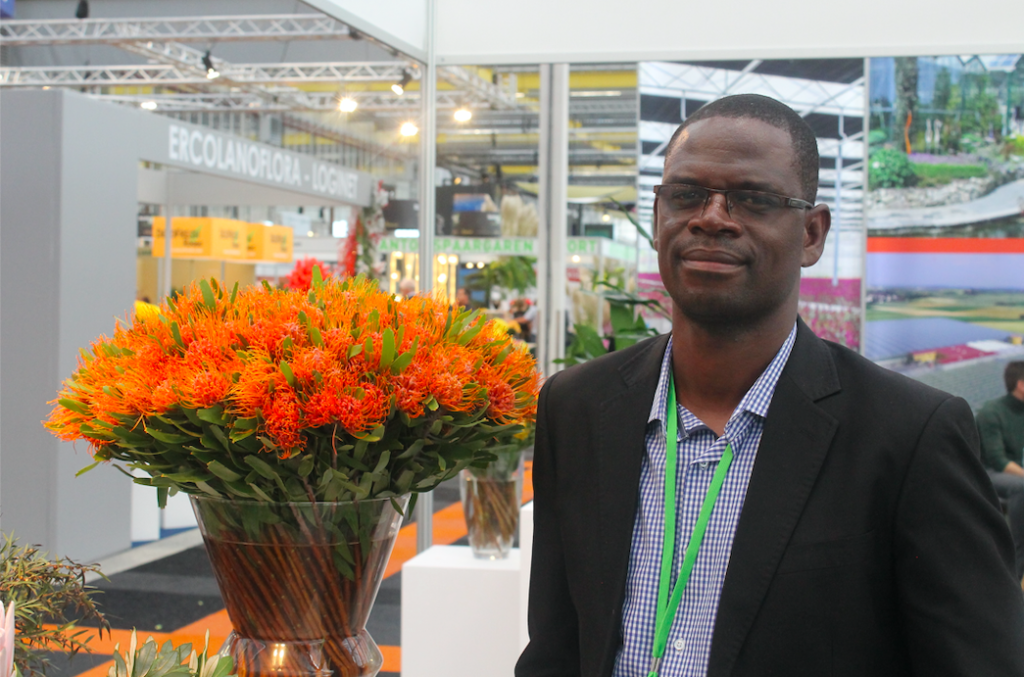There have been hardly any investments at all in the horticultural sector in Zimbabwe since last February. That’s because growers must pay 20% of their export turnover to the government. The Horticulture Development Council is trying to put an end to this policy.
It looked as if things were moving in the right direction for the Zimbabwean horticultural sector. The country – once the breadbasket of Africa – had been making great progress since the forced resignation of the late Robert Mugabe. The agricultural and horticultural sectors, which had come to a near halt after Mugabe’s expropriation policy, were revived.
Back to life
The government of successor Emmerson Mnangagwa opened the borders for investors. The new government leaders travelled all over the world, trying to attract countries and private investors to Zimbabwe. Subusiso Moyo, Minister of Foreign Affairs and International Trade, visited The Hague in July 2018, where Floribusiness, Hortipoint’s international publication, spoke with him. He explained that Zimbabwe wanted to bring its horticultural industry back to life. The full interview is still available here.

More recently, at IFTF, Gorden Makoni, chairman of the Export Flower Growers Association of Zimbabwe (EFGAZ), stated at IFTF that Zimbabwe has invested around $800 million in its horticulture sector since 2017. They planted 20,000 ha of avocado and 20,000 ha of macadamia nut in a short period of time. The flower sector expanded too, especially with summer flowers. Makoni added that Dutch Flower Group and Dümmen Orange are two of the larger companies that are active in Zimbabwe.
Come to al halt
But since last February, the investments in the Zimbabwean horticultural sector have come to a halt. The cause? Statutory Instrument 133, which was introduced by the new finance minister. Part of this legislation stipulates that Zimbabwean entrepreneurs must pay 20% of their export profits to the government. The destitute government uses this money to pay for medicines, electricity and fuel. Makoni explained that in exchange for the payment of export profits, entrepreneurs receive Zim dollars, which they need to spend quickly.
Last May, the horticultural entrepreneurs agreed they needed a body to represent their interests and to lobby and influence policies at government level. That’s when they founded the Horticulture Development Council (HDC), which will officially begin their activities in December. HDC is supported by the Department for International Development in the United Kingdom (DFID), the United States Agency for International Development (USAID), and the Embassy of the Netherlands in Harare. Makone is also involved in HDC. “We want to protect investments and make it easier to do business in Zimbabwe.”
Still very bad
The Zimbabwean government isn’t the only one without money. There’s also a lot of poverty among the population. Makone agreed that the economy is still very bad. The cost of living has gone up and unemployment has increased. “The situation is terrible, and we hope it’s only temporary.” According to the EFGAZ chairman, the Zimbabweans have very little confidence in their government, partially due to their policies. “This lack of trust is disastrous.”
Having said that, Makone still sees many opportunities for the African country. If some of the policies can be changed, Zimbabwe will have the potential to become a very prosperous horticultural country again. “There’s lots of land in Zimbabwe, we’ve got the expertise, and thanks to the favourable climate, we can grow the best flowers in the world.”





